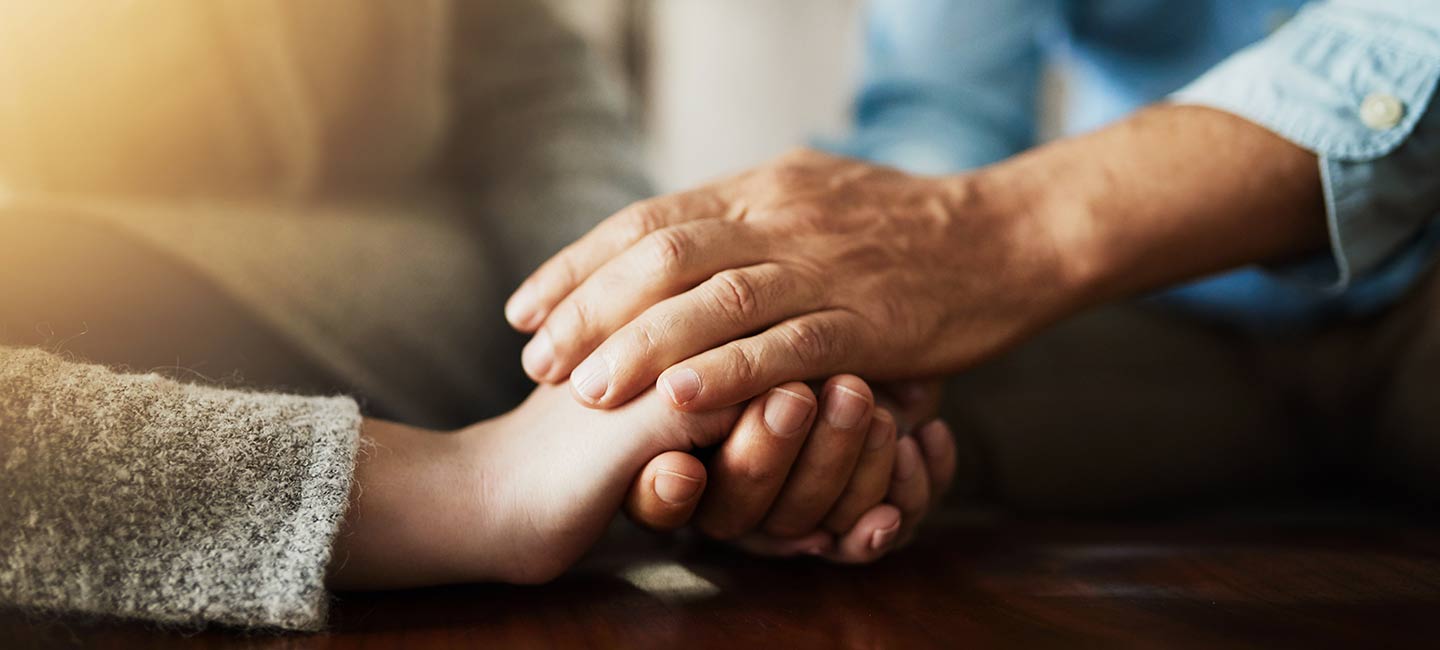Five Questions with Moffitt's Director of Social Work and Patient and Family Services
When someone is diagnosed with cancer, it can affect all aspects of their life. Social workers can help patients and their families cope with the many challenges of living with cancer. We sat down with Sean Powell, Director of Social Work and Patient and Family Services, to learn more about the role of a social worker during a patient’s cancer journey.
Can you tell me a little about your role here at Moffitt?
I am the Director of Social Work and Patient and Family Services. In that role, I am responsible for all of the psychosocial services that we offer at Moffitt. This includes social work assessments, which assess the person as a whole and how they are coping, as well as their families. We then work with the medical team to develop a holistic, individualized plan for each patient. I also oversee the Chaplaincy Care Program, lodging program, tobacco cessation and advanced care planning.
What encouraged you to pursue this career?
When I was very young I knew I wanted to be a lawyer, doctor or a psychologist. When I got to college though, I hated biology and I wasn’t very good at math or arguing so psychology was the only one left. After earning my bachelor’s degree, I realized that I didn’t want to pursue psychology because it was solely focused on diagnosis. Social work really looked at the person in the environment. I started a program and my first internship was at a small cancer center in Southwest Virginia. I loved it and I’ve been doing it for over 20 years now.
What are some of the ways you can help patients?
Well to start, most people don't understand what social workers do and so patients often don't even know what to ask for. We help patients put everything in perspective because at first, they're so focused on the diagnosis and the treatment plan that they forget everything else. We break down the logistics. For example, a patient might need radiation every day but they have to travel over five hours and so we work with them to make lodging accommodations. We help them plan their financials and childcare; anything that could affect their daily lives. We help with emotional changes and changes within the family. We also connect them with community programs based on their needs, as well as help them plan for the future with the advanced care plan.
When a patient first finds out they have cancer, it often comes as such a shock. How do you help patients cope with their initial diagnosis?
The first thing we do in therapy is a practice referred to as normalizing. No two people handle a cancer diagnosis the same way. They are flooded with varying emotions from anger, fear, sadness, a feeling of loss, and instantly they're faced with their own mortality. We help patients understand that whatever they're feeling at that moment is normal. We also help families understand and accept these emotions. It’s common for people to want to say “you need to stay positive” and that’s not fair to the patient. We want to acknowledge the feelings that they are having so that they can work through them. Over time we monitor these emotions to see how the patient is coping.
A lot of times we don’t know what to say when a friend or family member has been diagnosed. What do you think is an appropriate response?
There is no perfect response but most people want empathy. They want an open mind and open ear to listen to. I think it’s best to acknowledge their situation and offer support in any way you can. You can say, "I’m sorry you’re going through this if you need anything please reach out to me." Sometimes I think it’s good to offer something specific, such as "I can pick your son up from school if you’d like," because they don’t always know what they’re going to need. But the most important thing is to be genuine in your response. Sometimes it’s best to just listen and allow the person to cry, this is not something you can fix but you can be a source of support.



